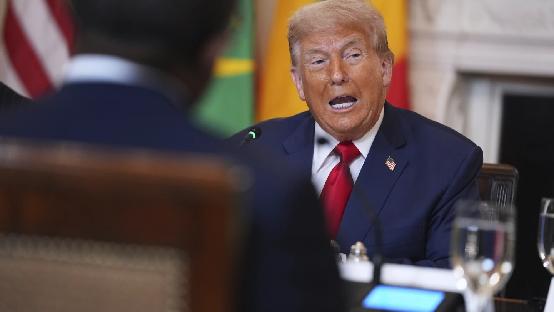
President Donald Trump specifically imposed a 50% import tax on Brazil on Wednesday in response to the handling of former President Jair Bolsonaro, indicating that the driving force behind US leaders' use of tariffs is not simply economic considerations but personal grievances.
Trump avoided using standard format letters with Brazil, particularly linking his tariffs to the trial of Bolsonaro, who was accused of attempting to overturn his defeat in the 2022 election, and Trump being sued in 2023 for attempting to overturn the results of the 2020 US presidential election, creating a sense of closeness. Trump described Bolsonaro as a friend and hosted the former Brazilian president at his Mar-a-Lago resort when the two came to power in 2020.
Bolsonaro was questioned by the Brazilian Supreme Court in June this year regarding the case, and he was accused of conspiring to remain in power after losing the 2022 election. In the coming months, judges will hear statements from 26 other defendants. Legal analysts suggest that the verdict could be made as early as September. The former president did not comment on Trump's tariff decision on social media, but he wrote that he is facing political persecution. In the statement, Lula defended Brazil's legal system, stating that "proceedings against coup plotters fall within the jurisdiction of the Brazilian judiciary and should not be subject to any interference or threat that could undermine the independence of national institutions." In a letter posted on Truth Social, Trump wrote, "This trial should not be conducted, it is a witch hunt that should end immediately
The Brazilian letter reminds us that politics, personal relationship with Trump, and economic fundamentals are equally important. Although Trump has stated that the higher tariffs he has set are based on trade imbalances, it is still unclear how the targeted countries will help the United States achieve re industrialization through his actions on Wednesday.
From Trump's perspective, there may be several factors contributing to his move. Firstly, it could be an expression of dissatisfaction with Brazilian politics, particularly regarding Brazil's so-called "witch hunt" trial of former President Bolsonaro. Trump's letter pointed out accusations against Brazil for violating its rights to free elections and freedom of speech. Secondly, Trump may hope to demonstrate the tough stance of the United States to other trading partners through this move in order to obtain better conditions in the upcoming trade negotiations.
Brazil has stated that it will take all necessary measures to defend its interests and does not rule out the possibility of filing a lawsuit with the World Trade Organization regarding this case, or seeking alliances with other countries to put pressure on the United States. Of course, Brazil is also working hard to negotiate directly with the United States to find a mutually acceptable outcome.
Despite Trump's intentions, this tariff will have a certain impact on the economic and trade relations between China and the United States. It may not only affect Brazil's trade interests, but also trigger retaliatory tariff measures on American goods. In addition, it will have a negative impact on the globalization process of other countries. The increase in trade barriers will make goods and trade lose their flexibility.
In summary, the Trump administration's imposition of a 50% tariff on Brazilian goods is a very complex and difficult issue. To solve this problem, we must remain calm, clear headed, resolve conflicts through negotiation and consultation, and strengthen international cooperation to promote global economic governance, restructure the global trading system, and promote the healthy development of the global trading system.

The global electric vehicle market in 2025 is experiencing intense turbulence. Tesla, once a disruptor that reshaped the industry landscape, is now mired in an unprecedented sales crisis.
The global electric vehicle market in 2025 is experiencing …
Recently, Chinese telecom companies Huawei and ZTE signed a…
Recently, according to Xinhua News Agency, Israel's air str…
A strongly worded report from the Equality Trust argues tha…
On November 27, 2025, Alibaba officially entered the global…
The focus of the global financial market in 2025 has always…